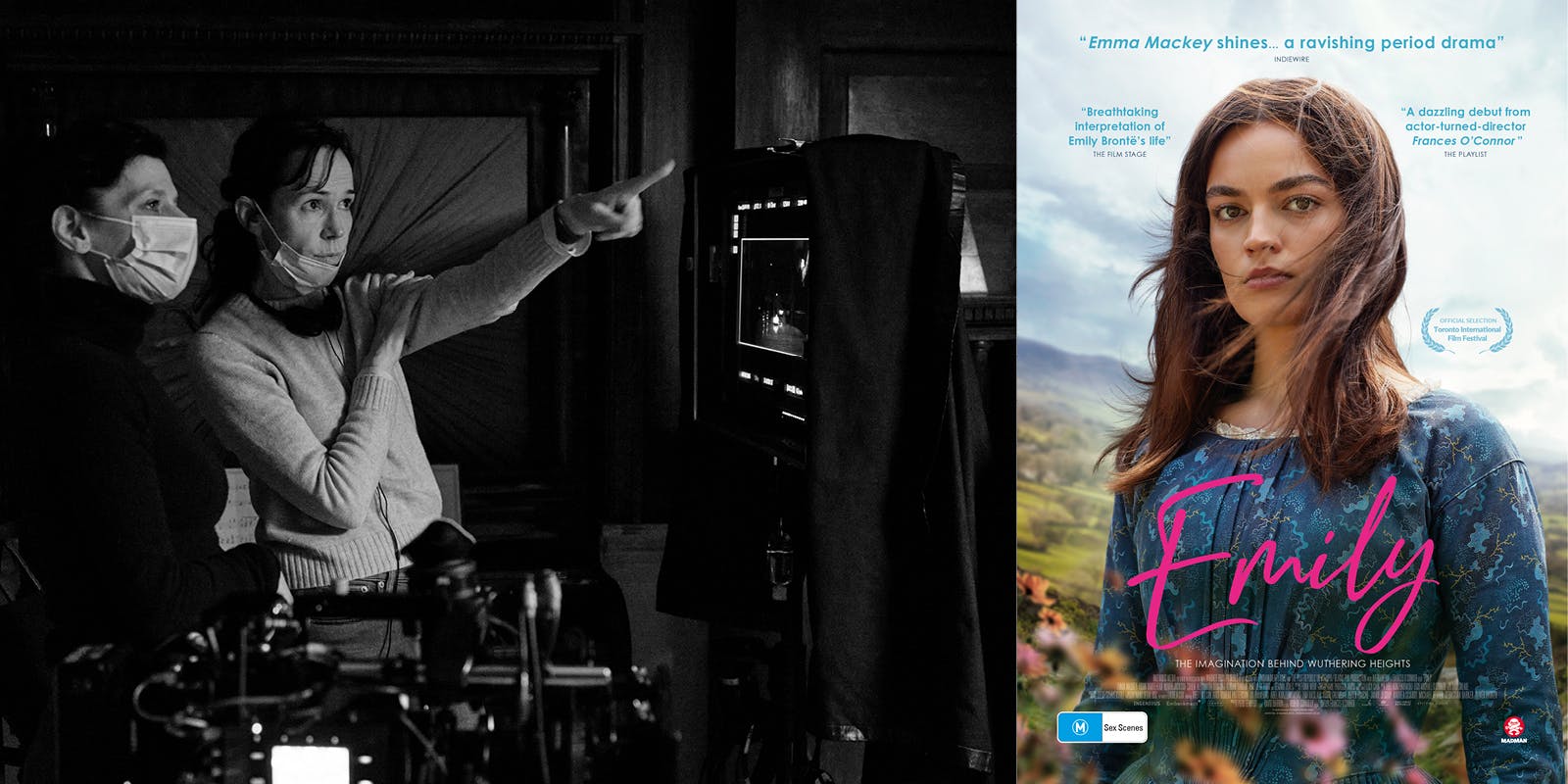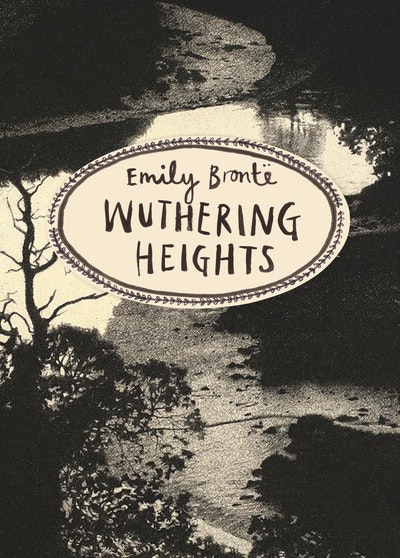We caught up with Frances O’Connor to learn about her latest directorial project: EMILY. Based on the life of Emily Brontë, it’s sure to delight fans of classic literature.
How has creating a film around such an empowered and fierce individual like Emily Brontë influenced you?
Getting to know someone who wrote such a brilliant piece of work makes you question your own creative process, how you work and who you are as a person – themes that are present in the film. It's all about finding your voice and a unique perspective to tell your story. That’s what I was trying to do with EMILY and that’s what Emily Brontë did with Wuthering Heights, which is why it was so full-on at the time of its initial publication.
Why is Wuthering Heights one of your favourite books?
I think I like Wuthering Heights because it’s so atmospheric and it has these rebellious characters in the centre of it who I identified with as a teenager. As I’ve become older, I enjoy the whole telling of the story – the story structure is really clever and there are bookends and different perspectives of who is telling the narrative. I also like Emily Brontë's poetry because you can feel who she is behind the words. It’s a way of getting close to who she was.
What advice do you have for women wanting to break norms?
Just do it.
Did you have a specific writing routine while working on the screenplay?
I tend to go for a run, and then I write after that. When I’m running or walking, I feel like I get good ideas – it must do something to the brain to activate it. Then I usually sit down and write in the morning because that’s when I’m fresh.
Sometimes, I’ll review stuff at the very end of the day. I’ll look at what I’ve written and go ‘oh my god that’s rubbish I’m going to start again’. Sometimes I’ll write all day. At the moment, I've been writing for most of the day because I have good concentration.
Sometimes I’ll have a whole week of good concentration and other times I’ll be really distracted. With the human brain, you sometimes have to create good conditions as a writer.
What is one thing you wish everyone knew about Emily?
She played Beethoven a lot which I think is kinda cool because you feel that in Wuthering Heights. She was an amazing piano player. She was different, she was very human… she failed at things before she become this gargantuan literary genius.
Socially she failed, it was hard for her to connect to people. I think that’s a good thing to share with people – you don’t have to be perfect to exist or have worth. It’s a great lesson in EMILY.
As someone who comes from an acting background, what was different/ surprising about directing?
I think it’s a really grown-up position. When you’re an actor it’s more childlike – a much more inventive, creative position on a film set. Whereas you’re holding everybody as a director. That wasn’t a surprise for me, but it was a steep learning curve in terms of always answering everybody’s questions, keeping things on track but not being too hard, and still saying soft enough to could create a good atmosphere for people.
I was surprised at how much I enjoyed editing. I just loved editing. It’s like another way to write the story and it's very creative.
How did you go about casting, EMILY? Did your experience as an actor help you in that regard?
It’s very painful watching other actors audition for parts because, when you’ve been on the other side so many times, you know how much it means to them. I found that really challenging. I wrote a lot of emails to people when they didn’t get the part, just to say, ‘you did really well and I think you’re a great actor’.
When we found Emma, she was the third person who auditioned and she was just so brilliant already in the part. She just had something to say about it that was very exciting. Everybody who ended up being in the film was just so perfect.
See EMILY in cinemas from January 12. Find your local cinema here.














